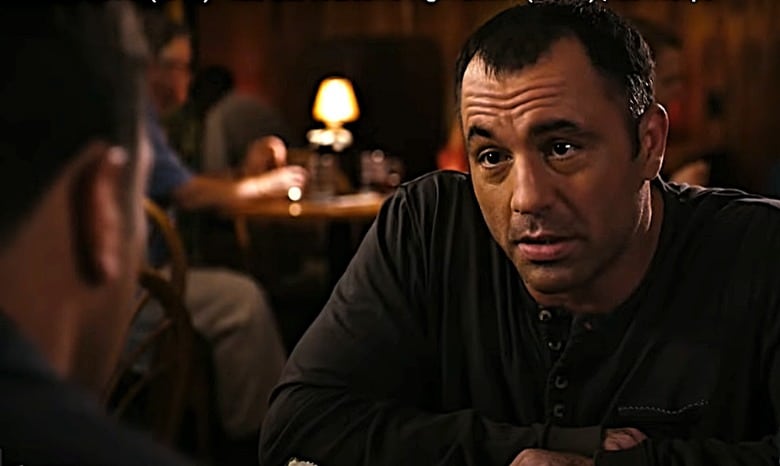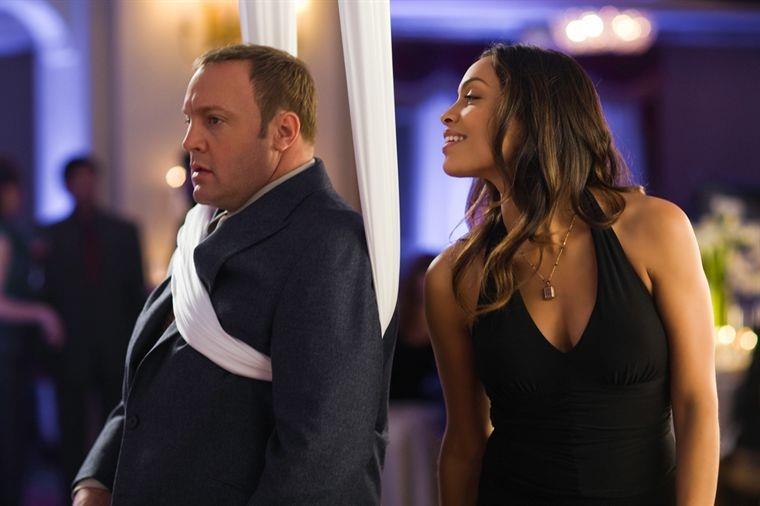Joe Rogan’s Interest in Zoos and Wildlife

Joe Rogan, a prominent figure in podcasting and entertainment, has often expressed his fascination with the natural world, including zoos and wildlife conservation. His discussions on these topics have garnered significant attention, raising questions about the potential impact of his platform on public perception of zoos.
Joe Rogan’s Statements and Discussions about Zoos and Wildlife Conservation
Joe Rogan’s interest in zoos and wildlife conservation has been evident in his podcast, “The Joe Rogan Experience,” where he has frequently discussed these topics with various guests. He has expressed admiration for the work of zookeepers and wildlife experts, highlighting their dedication to animal welfare and conservation efforts.
For instance, in an episode with Dr. Jane Goodall, a renowned primatologist, Rogan engaged in a lengthy conversation about the importance of protecting endangered species and the role of zoos in conservation. He acknowledged the ethical concerns surrounding keeping animals in captivity but also emphasized the educational value of zoos and their contribution to research and breeding programs.
“I think zoos are a necessary evil. I think they’re important for education, I think they’re important for conservation, but I think they’re also a reminder that we’re not the only species on this planet.” – Joe Rogan
Rogan’s stance on zoos can be considered nuanced. While acknowledging the potential ethical concerns, he emphasizes the positive aspects of zoos, including their role in education, conservation, and research. This balanced perspective has contributed to a more nuanced discussion about zoos and their place in society.
Joe Rogan’s Interactions with Zookeepers and Animal Experts
Joe Rogan has hosted a number of zookeepers and animal experts on his podcast, providing a platform for their insights and perspectives on wildlife conservation. These interactions have allowed him to gain firsthand knowledge about the challenges and triumphs of working with animals in captivity.
For example, in an episode with Dr. Steve Irwin’s daughter, Bindi Irwin, Rogan explored the importance of wildlife conservation and the role of zoos in protecting endangered species. He also discussed the challenges of balancing the needs of animals in captivity with the demands of public education and entertainment.
“I think it’s important to remember that these animals are not just exhibits, they’re living beings. And they deserve to be treated with respect.” – Joe Rogan
Rogan’s willingness to engage with zookeepers and animal experts has allowed him to present a more comprehensive view of zoos and their role in society. He has acknowledged the ethical considerations while also emphasizing the positive contributions of zoos to conservation and education.
The Potential Influence of Joe Rogan’s Platform on Public Perception of Zoos
Joe Rogan’s platform has a significant reach, and his discussions on zoos and wildlife conservation have the potential to influence public perception. His balanced perspective, which acknowledges both the ethical concerns and the positive aspects of zoos, has likely contributed to a more nuanced understanding of these institutions.
It is difficult to quantify the precise impact of Rogan’s platform on public opinion. However, his frequent discussions about zoos and wildlife conservation have undoubtedly raised awareness of these issues among his vast audience. This increased awareness can potentially lead to greater support for conservation efforts and a more informed public discourse about the role of zoos in society.
The Role of Zoos in Conservation and Education: Zookeeper Joe Rogan

Zoos play a multifaceted role in modern society, serving as both entertainment venues and crucial hubs for wildlife conservation and education. While the ethical considerations surrounding animal captivity remain a subject of ongoing debate, zoos have evolved significantly in recent decades, embracing a more proactive approach to conservation and animal welfare. This evolution has led to a spectrum of zoo management philosophies, each with its unique strengths and limitations.
Different Approaches to Zoo Management
The management of zoos encompasses a wide range of approaches, each prioritizing different aspects of animal welfare, conservation, and education.
- Traditional Zoos: Traditionally, zoos primarily focused on showcasing a diverse array of animals to the public, with a primary emphasis on entertainment. These zoos often prioritized aesthetic appeal and visitor experience over conservation efforts.
- Conservation-Oriented Zoos: In contrast, conservation-oriented zoos prioritize active involvement in conservation programs. These institutions often participate in species-specific breeding programs, habitat restoration projects, and research initiatives to support the survival of endangered species.
- Open-Concept Zoos: Open-concept zoos prioritize creating naturalistic enclosures that mimic the animals’ natural habitats. This approach aims to enhance the animals’ well-being by providing them with more space, natural stimuli, and opportunities for natural behaviors.
While traditional zoos continue to play a role in educating the public, conservation-oriented and open-concept zoos are increasingly recognized for their contributions to animal welfare and conservation.
Ethical Considerations of Animal Captivity, Zookeeper joe rogan
The ethical considerations of keeping animals in captivity, particularly endangered species, are complex and multifaceted.
- Animal Welfare: The primary ethical concern is ensuring the well-being of animals in captivity. This includes providing adequate living conditions, enriching environments, and minimizing stress.
- Conservation Value: The ethical justification for keeping endangered species in captivity lies in their potential contribution to conservation efforts. Zoos can play a vital role in preventing extinction, especially for species facing severe threats in the wild.
- Public Education: Zoos provide a platform for educating the public about the importance of conservation and the threats faced by wildlife. This education can inspire people to take action and support conservation initiatives.
Balancing these ethical considerations requires careful consideration of the specific needs of each species and the potential benefits and risks associated with captivity.
Successful Zoo-Based Conservation Programs
Numerous zoo-based conservation programs have demonstrated significant success in protecting endangered species and their habitats.
- California Condor Recovery Program: This program, initiated in the 1980s, involved captive breeding and reintroduction efforts to save the California condor from extinction. Through intensive management and habitat restoration, the population has significantly increased, with over 300 condors now soaring in the wild.
- Black-Footed Ferret Recovery Program: This program successfully brought the black-footed ferret back from the brink of extinction. Captive breeding programs and habitat restoration efforts have led to the reintroduction of black-footed ferrets into their natural range, with a growing wild population.
- Golden Lion Tamarin Conservation Program: This program has focused on protecting the critically endangered golden lion tamarin in Brazil. Through captive breeding, habitat restoration, and community outreach, the program has helped increase the wild population of these charismatic primates.
These programs highlight the crucial role zoos can play in conservation, demonstrating their ability to contribute to the survival of threatened species.
Joe Rogan’s Views on Animal Welfare and Ethics

Joe Rogan, a prominent figure in the world of podcasts and entertainment, has often expressed his views on animal welfare and ethics, generating both support and criticism. His stance on these issues, often presented through his podcast “The Joe Rogan Experience,” has garnered significant attention, influencing public perception and sparking discussions about animal rights. This section explores Joe Rogan’s views on animal welfare and ethics, examining their potential impact on public understanding and comparing them with those of prominent animal rights organizations.
Joe Rogan’s Stance on Animal Welfare
Joe Rogan has consistently demonstrated a concern for animal welfare, advocating for humane treatment and responsible animal care. He has expressed empathy for animals, particularly those used for food or entertainment, often highlighting the ethical dilemmas associated with these practices. Rogan’s views are rooted in his belief that animals deserve respect and consideration, emphasizing the importance of understanding their sentience and capacity for suffering. His stance on animal welfare is often characterized by a pragmatic approach, acknowledging the complex relationship between humans and animals while advocating for ethical treatment and minimizing unnecessary suffering.
Joe Rogan’s Views on Animal Rights
While Rogan expresses concern for animal welfare, his stance on animal rights is more nuanced. He has stated that he doesn’t subscribe to the belief that animals have the same rights as humans. However, he acknowledges that animals deserve certain rights, including protection from cruelty and exploitation. Rogan’s position on animal rights reflects a growing trend in public discourse, where the focus shifts from advocating for complete animal liberation to advocating for humane treatment and minimizing animal suffering.
The Impact of Joe Rogan’s Views on Public Understanding
Joe Rogan’s platform, with its vast audience, has the potential to significantly impact public understanding of animal welfare. His discussions on animal ethics and welfare often introduce complex issues to a broad audience, sparking conversations and raising awareness about animal rights and animal suffering. Rogan’s influence extends beyond his podcast, as his views are often amplified by his followers and shared across various social media platforms. This amplified exposure can potentially contribute to a more informed and compassionate public discourse surrounding animal welfare.
Comparison with Animal Rights Organizations
Joe Rogan’s views on animal welfare and ethics often differ from those of prominent animal rights organizations. While many animal rights organizations advocate for complete animal liberation and oppose any form of animal exploitation, Rogan’s stance leans towards a more pragmatic approach, advocating for humane treatment and minimizing suffering. Rogan’s views are often criticized by animal rights organizations for not going far enough in advocating for animal rights. Despite these differences, Rogan’s platform has the potential to bring attention to animal welfare issues and encourage a more nuanced and thoughtful discussion about animal rights.
Zookeeper Joe Rogan, known for his quirky animal encounters and comedic timing, often draws parallels to other comedic personalities. One such figure is kevin meaney , a stand-up comedian known for his observational humor and relatable anecdotes. Like Joe Rogan, Kevin Meaney’s comedic style relies on a genuine connection with the audience, making his performances both funny and insightful.
Zookeeper Joe Rogan, with his captivating blend of humor and animal knowledge, reminds us that laughter can be found in unexpected places. Just like Joe, comedian Owen Smith owen smith comedian uses his unique perspective to bring joy to audiences.
Whether it’s Joe’s interactions with exotic creatures or Owen’s witty observations on everyday life, both demonstrate the power of laughter to connect and uplift.
